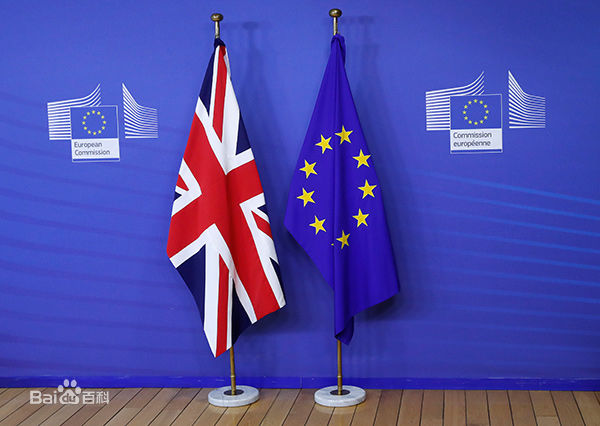To maintain peace, a soft Brexit for Ireland
- By Sumantra Maitra
 0 Comment(s)
0 Comment(s) Print
Print E-mail China.org.cn, November 22, 2017
E-mail China.org.cn, November 22, 2017
 |
|
Flags of the United Kingdom and the European Union [File photo] |
As Brexit talks resume between the United Kingdom and the European Union, British officials are warning Brussels not to jeopardize the U.K.'s constitutional and economic integrity with regard to Northern Ireland.
A recently leaked negotiating document suggests that the EU wants to avoid "regulatory divergence" on the island of Ireland, meaning that the rules of the EU single market and customs union would be maintained for Northern Ireland. By keeping the entire island under EU regulations – and not installing any physical border or customs between the two states – the Irish Republic will be able to continue trading and engaging with the north as usual. However, this would push customs checks to the ports of Northern Ireland, effectively instituting a trade border separating it from the rest of the U.K. British Brexit Secretary David Davis argued that while a single market on the island is important, it shouldn't come at the cost of the U.K.'s territorial integrity.
Meanwhile, the EU is drawing up contingency plans for the possible collapse of dialogues related to Britain's departure. Michel Barnier, the Brexit negotiator representing Brussels, says that while there’s no intention to let the talks fall apart, there's always the possibility. "Everyone needs to plan for it, member states and businesses alike. We too are making technical preparations for it. On 29 March 2019, the United Kingdom will become a third country," he recently told French newspaper Le Journal du Dimanche.
This comes at a precarious time for British Prime Minister Theresa May. There hasn't been a Tory-led government this unstable since the days of John Major in the early '90s. May is barely hanging on to her post, and the Tories have lost the will to fight in a battle they are somewhat reluctantly leading. The majority of the cabinet is confused as to what they want, and rebel Tories who are actually closet liberals on trade want to stop Brexit altogether.
European Parliament Brexit coordinator Guy Verhofstadt stated that the interests of Ireland should outweigh those of the British Conservative party. "I hope the British government will do what is right for all the people of Northern Ireland. The peace process should transcend domestic party politics," he said.
Currently, there are discussions on whether making Northern Ireland into a special economic zone, with its own trade regimes and rules, which would be acceptable to the EU. Such a designation may be the only way out of the difficult border dispute. The British are not too concerned about the specifics of Irish trade; the only thing the U.K. worries about is the breakdown of the peace process, which is unlikely but not impossible. A return to violence has been ruled out by all sides, but it may not take long for conflicts to emerge. If EU laws are applied to Ireland, then a border will be erected between the province and the rest of the U.K., which will only raise more sovereignty and customs issues.
This possibility must be discarded immediately. The fundamental priority is that the peace process be maintained, which is not a difficult task. If the problem of Greece could be solved, so too can the British exit. Prime Minister May simply needs to show some backbone and curtail the hard Brexiters in her own party.
Sumantra Maitra is a columnist with China.org.cn. For more information please visit:
http://www.china.org.cn/opinion/SumantraMaitra.htm
Opinion articles reflect the views of their authors only, not necessarily those of China.org.cn.






Go to Forum >>0 Comment(s)